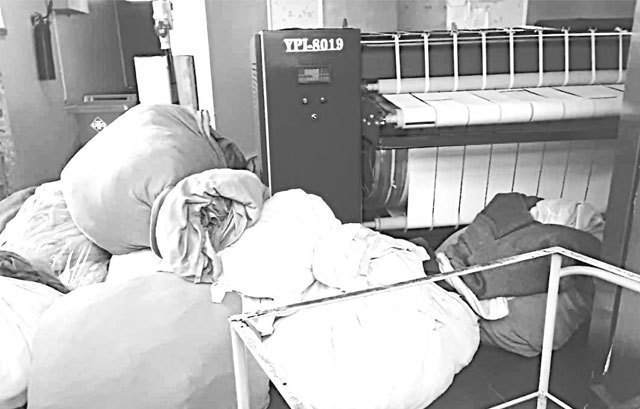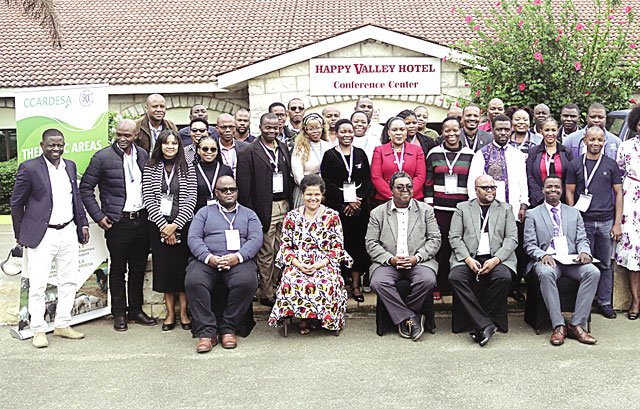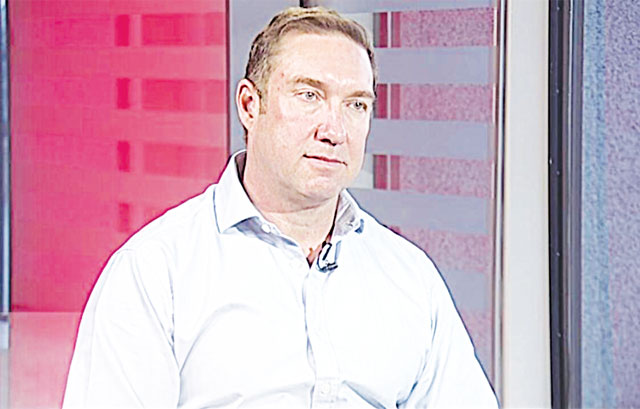By Joy Ndwandwe | 2018-11-18
The Kingdom of Eswatini deserves the salutation Siyinqaba, as we are a divided nation, which has not yet erupted into chaotic state.
Divided we are, personally I stopped denying, when it dawned to me how I originate from a divided nation. Divided religiously, politically and morally, hence, my quest for a national social cohesion dialogue. I tested these thoughts off Facebook, endowed with intriguing responses as most people agreed with the notion of a divided nation.
This was overwhelming; most people felt there is a need for a national dialogue, whilst some felt they have spoken enough without positive response from the government. Moreover, there were those who continue to call for a people’s revolution, and adamantly refuse to engage in dialogue with the king and government.
This school of thought refuses to learn from the wisdom of Nelson Mandela, who led the ANC during CODESA, thus, looked the apartheid regime in the eyes and negotiated liberation. Eswatini, in fact, has pockets of citizens that will not dialogue, angry about the 1973 decree and have wounds of 1986, and therefore will remain in the periphery of dialogue. Yet Siyinqaba we continue living and breathing with these serious divisions, also highlighted as a source of unhappiness within the country, emerging from economic crises.
Religiously
A Christian country is how we have branded this kingdom, and it is true, majority is Christian and the sources of divisions are not coming from Muslims community. Christians are divided, this is evident in how there are those who refuse to participate in traditions, culture and customs. Yet, this is what’s keeping this country from erupting into chaotic state with roots in indigenous governance systems.
These are negated, demonised and vilified within Christian communities, embedded with the traditions, culture and customs of this country.
I often dismiss whether these views are products of colonial education or these are conscious decision of self-hatred and insecurities. As identity is a core of our being, and when religion becomes our identity, this translates into cognitive dissonance.
This cognitive dissonance is evident within the Christian community, rejecting Swati identity and even buying props for their Christian identity.
The dress codes, hair, nails and eyes are distinct factors that physically locate this cognitive dissonance visibly, unearthing the elements of self-hatred and insecurities.
Moreover, when they open their mouths the verbal discourse is judgemental utterances negating tradition, culture and customs, yet, they will be the first to want these jobs. From the traditional, cultural and customary institutions that they negate at every given moment, as they wish to accumulate tithes for the church.
The traditional churches have joined these negative utterances, as this trend is attractive to those with substantial cash-flows as the bottom line of the churches is more critical than souls. We stand divided religiously, hence, we need a dialogue, and not a prayer session as this does not create space for critical engagement.
Politically
The only time I wished I worked for government, would be to engage on whether the 1973 decree is effective or it is just a populist slogan. Therefore, what would it take for government, in clearly articulating an official position or statement on whether this 1973 decree is officially relinquished by the 2015 Constitution?
As an indigenous governance researcher and decoloniality activist, 1973 decree happened as a response to colonialist 1968 Constitution; however, recent political processes have evolved into the 2015 Constitution.
Now, how do we move forward with those who feel infringed by the events of 1973, and wish to pursue their political interest in accordance with the 2015 Constitution? There must be a national dialogue for social cohesion, as this current political impasse, has unfortunately created many leaders and many tricksters, boChakijane.
On other note, this 1973 decree has characteristics of manipulative Chakijane and manipulated by many as they spread butterfly wings all over the world, whilst chaos awaits to happen within the country.
These are the critical questions that must be unpacked in a national dialogue for social cohesion, as the current denialism is dangerous for all citizens.
There needs to be an open dialogue on the possible integration of Tinkhundla systems of governance with political organisations, currently Tinkhundla constituencies have substituted politics with money and power.
This is extremely dangerous, and the best analogy to describe the potential chaos that could erupt with these two butterflies, money and power, is the very analogy that King Sobhuza II used to deter political parties, stating political parties are synonymous to throwing the kingdom into the sky for those with spears to catch it?
As I write, I feel the kingdom is thrown into the sky, those with money and power are catching it, thus requiring extensive transformative intervention towards the integrating of Tinkhundla constituencies with political formations. In the interest of social cohesion as one day, we will wake up finding the country sold by those who worship money and power, rendering the country textbook model for chaos theory.
Morally
Morally this country is bankrupt, this has manifested in the economic crisis, reflecting how the country’s choices are rooted within greed, materialism and corruption. Lack of motality will erupt this country into the state of chaos, as it has created divisions between the rich and poor. It is immoral to amass wealth that should be for improving the quality of life of the people.
This is not politics but morality, whether we have Tinkhundla or political formations, this requires dialogue as the current divisions between the rich and power are widening. Evidently, divided, with many butterflies who are actors within the gimmicks of greed, materialism and corruption, further contributing to divisions between the rich and poor that are glaring. Those actors wish to stabilise and balance the country are marginalised, and this requires a national dialogue for social cohesion.
These moral divisions are evident within economic, religious and political spaces, which is sad as this further divides the nation. These same institutions will begin competing for the limited opportunities that this country has, thus furthering the divisions we are currently experiencing. Moral ethics have deteriorated in this country, and the less morals one has the more money and wealth they accumulate. Now if there is any catalyst for the eruption for chaos are all those immoral but wealthy butterflies, because they believe they are invincible.
Unfortunately, our Anti-Corruption Unit is weakened and fragile, thus unable to deal with these corrupt butterflies. The money laundering and illicit funds are flowing within this country as these corrupt butterflies are roaming untouchables. This is why the national dialogue ofsocial cohesion is critical, as we can no longer live in denialism, as we are a morally divided nation.
In conclusion, my heartfelt condolence to the Swazi Observer family, Thwala family and friends on the passing of Thulani Andreas Thwala.
A strategic and thought provoking editor, who is gone but will not be forgotten, as stokes of his pen created many strokes in the bodies of leaders of this country. Thwala, a nation builder of this era shocked us by leaving us with a big bang after recovering from illness, an honourable narrator whose narratives will linger on for many years. Thulani did not only build a nation, created a lifetime legacy that we can only stand on this giants shoulders, and never attempt to walk in his footsteps.
Rest in Peace and Power Shivakati!
share story
Post Your Comments Below

While things are falling apart at the Pigg’s Peak Government Hospital, the ministry of heal...

SOCCER - LIVING on borrowed time!
For the first time in history of local football, two of...

Eswatini along with many other African nations is under scrutiny for failing to meet its commitme...

Status Capital Building Society shareholders are once again being asked to take part in an audaci...
All material © Swazi Observer. Material may not be published or reproduced in any form without prior written permission.
Design by Real Image Internet